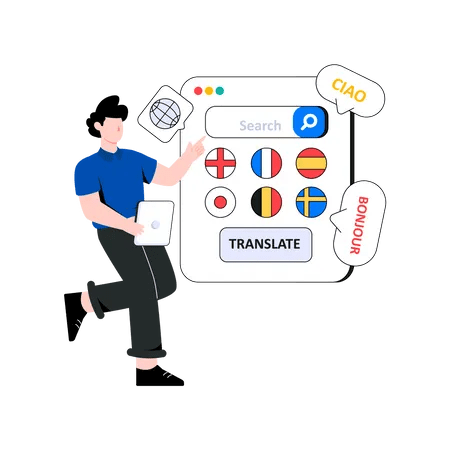 In the academic world, the translation of an abstract is a critical service for students globally, ensuring their research papers reach a broader audience and achieve higher recognition. Academic papers often contain complex and nuanced ideas that must be communicated effectively across different languages and cultures. Our translation service specializes in translating these abstracts, providing a vital bridge for students who wish to share their research internationally. The translation of an abstract requires not only linguistic skills but also a deep understanding of the subject matter to ensure the academic integrity and accuracy of the content. For students, the importance of precise translation cannot be overstated, as the abstract is often the first and sometimes only part of a paper that potential readers, including peers and academics, will read. A well-translated abstract can significantly impact the reception of the entire paper, making it accessible to a global audience. This accessibility is crucial for students seeking to publish their work in international journals, present at conferences, or collaborate with researchers from different parts of the world. By providing high-quality translation services, we enable students to overcome language barriers and engage with a diverse scholarly community. Our team consists of experts who are not only proficient in multilingual translations to english, but also have specialized knowledge in various academic fields, ensuring that the nuances and technical terms of the original paper are accurately conveyed. The global nature of academic research today necessitates such services, as more students are involved in cross-cultural and interdisciplinary studies. The translation of an abstract allows these students to showcase their work to a broader audience, facilitating academic exchange and enhancing their academic profiles. Moreover, for students from non-English speaking backgrounds, this service is invaluable in leveling the playing field, allowing their research to compete on an international stage. We understand that every academic paper is unique, and our approach to translation reflects this, focusing on preserving the original author's intent and style while making the text accessible to a wider readership. This personalized service is particularly beneficial for students who may be less confident in their language skills but wish to ensure their work is presented professionally. The translation of abstracts is a critical service for students globally, enabling them to disseminate their research widely and effectively. By breaking down language barriers, we help students achieve greater academic visibility and contribute to the global exchange of knowledge.
In the academic world, the translation of an abstract is a critical service for students globally, ensuring their research papers reach a broader audience and achieve higher recognition. Academic papers often contain complex and nuanced ideas that must be communicated effectively across different languages and cultures. Our translation service specializes in translating these abstracts, providing a vital bridge for students who wish to share their research internationally. The translation of an abstract requires not only linguistic skills but also a deep understanding of the subject matter to ensure the academic integrity and accuracy of the content. For students, the importance of precise translation cannot be overstated, as the abstract is often the first and sometimes only part of a paper that potential readers, including peers and academics, will read. A well-translated abstract can significantly impact the reception of the entire paper, making it accessible to a global audience. This accessibility is crucial for students seeking to publish their work in international journals, present at conferences, or collaborate with researchers from different parts of the world. By providing high-quality translation services, we enable students to overcome language barriers and engage with a diverse scholarly community. Our team consists of experts who are not only proficient in multilingual translations to english, but also have specialized knowledge in various academic fields, ensuring that the nuances and technical terms of the original paper are accurately conveyed. The global nature of academic research today necessitates such services, as more students are involved in cross-cultural and interdisciplinary studies. The translation of an abstract allows these students to showcase their work to a broader audience, facilitating academic exchange and enhancing their academic profiles. Moreover, for students from non-English speaking backgrounds, this service is invaluable in leveling the playing field, allowing their research to compete on an international stage. We understand that every academic paper is unique, and our approach to translation reflects this, focusing on preserving the original author's intent and style while making the text accessible to a wider readership. This personalized service is particularly beneficial for students who may be less confident in their language skills but wish to ensure their work is presented professionally. The translation of abstracts is a critical service for students globally, enabling them to disseminate their research widely and effectively. By breaking down language barriers, we help students achieve greater academic visibility and contribute to the global exchange of knowledge.
Guide for International Students with Academic Abstract Translation
Embarking on an academic journey in a foreign country presents unique challenges, particularly for international students grappling with language barriers and unfamiliar academic conventions. One critical aspect of this journey is understanding academic abstracts, which are concise summaries of research papers. These abstracts are pivotal in conveying the core ideas and significance of a study. To support international students in navigating this complex landscape, we offer a comprehensive guide focusing on the translation and understanding of academic abstracts. This guide is tailored to enhance clarity, accessibility, and academic success across diverse linguistic and cultural backgrounds.
Key Elements of Our Guide:
- Understanding Academic Language: Academic abstracts often employ specialized terminology and complex language structures. For international students, deciphering these terms can be challenging. Our guide provides detailed explanations and translations of common academic phrases and jargon. By breaking down these complex terms, we make it easier for students to grasp the essence of the research, fostering a deeper understanding of the subject matter.
- Cultural Context and Translation: The academic standards and expectations vary widely across the globe. Recognizing these differences, our guide highlights how cultural context influences the writing and interpretation of abstracts. For instance, the tone, structure, and emphasis in abstracts can differ between Western and Eastern academic traditions. We provide insights into these cultural nuances, helping students adapt to diverse academic environments and communicate effectively within them.
- Practical Tips for Translation: Translating academic abstracts is not just about word-for-word conversion; it requires a nuanced understanding of the content. Our guide offers practical tips on how to approach the translation process. This includes identifying key points, maintaining the original meaning, and ensuring that the translation is both accurate and readable. We also emphasize the importance of retaining the original abstract's intent, tone, and style, while making it accessible to a global audience.
- Developing Writing Skills: In addition to understanding and translating abstracts, our guide encourages students to enhance their academic paper writing and translation skills. We provide strategies for crafting clear, concise, and impactful abstracts as well as comprehensive support for writing and translating entire academic papers. This section includes guidance on structure, content prioritization, and language use. By improving their writing and translation skills, students can better present their own research, making their work more accessible and engaging to a global academic audience.
- Resources and Tools: To further support international students, our guide includes a list of valuable resources and tools. These range from bilingual dictionaries and academic phrase banks to online translation services and academic writing platforms. These tools are carefully curated to assist students in overcoming language barriers and enhancing their academic experience.
Our guide aims to be an essential resource for international students navigating the complexities of translation of academic abstracts. By offering clear explanations, cultural insights, practical translation tips, and writing strategies, we empower students to overcome linguistic challenges and thrive in their academic pursuits. This guide not only facilitates understanding but also fosters a more inclusive and interconnected global academic community.
How Can Research Abstract Translation Enhance Global Academic Success? Experts Guidance
 In a world where knowledge knows no borders, the translation of research summaries stands as a crucial pillar in bridging linguistic divides. While academic breakthroughs often make headlines, the hidden heroes are the translators who convert complex research into accessible summaries, ensuring that language barriers do not impede the flow of information. This practice is pivotal in fostering a truly global academic community, where insights and innovations are not confined by language. The ability to share research findings across different languages democratizes knowledge, making it accessible to scholars and students who might otherwise be excluded from the latest academic advancements. In many fields, English dominates as the lingua franca, creating a significant disadvantage for non-English speaking researchers and students. Translating research summaries into multiple languages breaks down these barriers, allowing scholars from diverse linguistic backgrounds to engage with and contribute to the global academic dialogue. For example scholars in China may require chinese to english translation for the journals, research papers to be able to publish them for global research. This inclusivity enriches the academic landscape, providing a platform for a broader spectrum of voices and perspectives. Beyond accessibility, translating research summaries also plays a critical role in fostering cross-cultural academic exchanges. Different regions often approach research with unique methodologies and theoretical frameworks, shaped by local contexts and cultural norms. By translating these summaries, researchers can share their distinctive insights with an international audience, fostering collaborations that lead to innovative solutions to global issues. These exchanges are particularly valuable in fields such as medicine, environmental science, and technology, where global cooperation can accelerate progress. For students, access to translated research summaries can significantly enhance their educational experience. It provides them with a more comprehensive understanding of their field, exposing them to diverse perspectives and approaches. This global exposure is invaluable, preparing them for future academic and professional endeavors in an increasingly interconnected world. Furthermore, engaging with academic materials in multiple languages can enhance students' language skills, making them more versatile and competitive in the global job market. However, the process of translating research summaries is not without its challenges. The precision of academic language requires that translations maintain the integrity of the original text. Misinterpretations or inaccuracies can lead to misunderstandings or misapplications of research findings. Therefore, the role of skilled translators, who are well-versed in both the source and target languages as well as the specific academic discipline, is critical. In essence, the translation of research abstracts is more than a mere academic exercise; it is a key driver of global academic success. By breaking down language barriers, it ensures that knowledge is not confined by geography or language, but is shared widely and equitably. As we move towards a more interconnected academic community, the importance of this work cannot be overstated, paving the way for a more inclusive and innovative future.
In a world where knowledge knows no borders, the translation of research summaries stands as a crucial pillar in bridging linguistic divides. While academic breakthroughs often make headlines, the hidden heroes are the translators who convert complex research into accessible summaries, ensuring that language barriers do not impede the flow of information. This practice is pivotal in fostering a truly global academic community, where insights and innovations are not confined by language. The ability to share research findings across different languages democratizes knowledge, making it accessible to scholars and students who might otherwise be excluded from the latest academic advancements. In many fields, English dominates as the lingua franca, creating a significant disadvantage for non-English speaking researchers and students. Translating research summaries into multiple languages breaks down these barriers, allowing scholars from diverse linguistic backgrounds to engage with and contribute to the global academic dialogue. For example scholars in China may require chinese to english translation for the journals, research papers to be able to publish them for global research. This inclusivity enriches the academic landscape, providing a platform for a broader spectrum of voices and perspectives. Beyond accessibility, translating research summaries also plays a critical role in fostering cross-cultural academic exchanges. Different regions often approach research with unique methodologies and theoretical frameworks, shaped by local contexts and cultural norms. By translating these summaries, researchers can share their distinctive insights with an international audience, fostering collaborations that lead to innovative solutions to global issues. These exchanges are particularly valuable in fields such as medicine, environmental science, and technology, where global cooperation can accelerate progress. For students, access to translated research summaries can significantly enhance their educational experience. It provides them with a more comprehensive understanding of their field, exposing them to diverse perspectives and approaches. This global exposure is invaluable, preparing them for future academic and professional endeavors in an increasingly interconnected world. Furthermore, engaging with academic materials in multiple languages can enhance students' language skills, making them more versatile and competitive in the global job market. However, the process of translating research summaries is not without its challenges. The precision of academic language requires that translations maintain the integrity of the original text. Misinterpretations or inaccuracies can lead to misunderstandings or misapplications of research findings. Therefore, the role of skilled translators, who are well-versed in both the source and target languages as well as the specific academic discipline, is critical. In essence, the translation of research abstracts is more than a mere academic exercise; it is a key driver of global academic success. By breaking down language barriers, it ensures that knowledge is not confined by geography or language, but is shared widely and equitably. As we move towards a more interconnected academic community, the importance of this work cannot be overstated, paving the way for a more inclusive and innovative future.
Get our Journal Abstract Translation to Make your Work Accessible Globally
In the academic world, the dissemination of knowledge is paramount. However, the language barrier often limits the accessibility of valuable research findings. By translating the abstracts of your journal papers, you can ensure that your work reaches a broader, international audience, transcending linguistic boundaries and fostering global academic collaboration.
- The Power of Translation for an Abstract: An abstract serves as the gateway to your research, providing a concise summary of your work's aims, methods, and conclusions. Translating this key component into multiple languages can significantly enhance the visibility and impact of your research. For international students, scholars, and professionals, accessing studies in their native language can be crucial for understanding and applying the information effectively. Therefore, by offering translated abstracts, you cater to a more diverse audience and increase the potential citations and applications of your work.
- Why Translation Matters in Academia: In the global academic community, English is often considered the lingua franca. However, a significant proportion of researchers and students prefer or require access to information in other languages. By translating your abstract, you make your research accessible to non-English-speaking scholars, thereby fostering inclusivity in academic discourse. This practice not only enhances the visibility of your work but also promotes cross-cultural academic exchanges, leading to richer and more diverse perspectives in your field.
- Reaching a Global Audience: Translating abstracts into widely spoken languages such as Spanish, Chinese, French, and Arabic can exponentially increase the reach of your work. For example, translating into Chinese can open doors to a vast audience in one of the world's largest academic markets. Similarly, translations into Spanish can connect your research with scholars across Latin America and Spain. This broader reach not only amplifies the academic impact of your research but also enhances your profile as a scholar committed to global accessibility.
- The Role of Professional Translators: While automated translation tools have made significant advancements, they often fail to capture the nuances and technical jargon inherent in academic writing. Professional translators with expertise in specific academic fields ensure that the translated abstract retains the original meaning and clarity. They also consider cultural and contextual differences that may affect the interpretation of your work. Investing in professional translation services ensures that your research is accurately represented and effectively communicated to an international audience.
In an increasingly interconnected world, the translation of academic abstracts is a strategic tool for expanding the reach and impact of your research. It bridges the language gap, allowing scholars from diverse backgrounds to engage with your work. By making your research accessible globally through our journal papers translation assistance, you contribute to a more inclusive and collaborative academic environment. Embrace the power of translation and open your work to the world, ensuring that your research can inspire and inform across borders.
In today's interconnected academic landscape, the translation of a journal abstract has become an invaluable service for students worldwide. With universities and research institutions increasingly promoting global collaboration, the ability to present one's work to a diverse audience is more crucial than ever. By translating academic abstracts, students can transcend linguistic barriers, ensuring their research reaches an international audience and gains the recognition it deserves. This service not only facilitates the dissemination of knowledge but also enhances the academic reputation and potential impact of the papers. For students, especially those for whom English is not the first language, having their research summaries accurately translated into multiple languages can open doors to new opportunities, collaborations, and citations. This global approach to academic communication acknowledges the diversity of thought and perspectives that are essential to advancing knowledge across disciplines. In essence, providing high-quality translations of abstracts is not just about language conversion; it's about enabling students to participate in the global academic conversation on equal footing. It's a crucial step in promoting inclusivity and ensuring that groundbreaking research from all corners of the world is accessible to scholars, practitioners, and policymakers. As we continue to champion global learning and research, offering specialized translation services becomes an indispensable tool in bridging gaps and fostering a truly international academic community.

 For international students, language barriers can present significant challenges in academic settings, often affecting their ability to produce high-quality work. To address this issue, specialized translation services have emerged, offering essential
For international students, language barriers can present significant challenges in academic settings, often affecting their ability to produce high-quality work. To address this issue, specialized translation services have emerged, offering essential 

